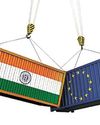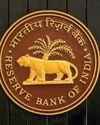Try GOLD - Free
Historical roots of contemporary conflicts in the Levant region
The Business Guardian
|February 18, 2025
The Levant refers to the eastern Mediterranean region consisting of modern-day Syria, Lebanon, Jordan, Israel/Palestine, and parts of Iraq and Turkey.
In the contemporary world order, the Levant is in turmoil. The genocide in Gaza has led to the explosive entry of Palestine on the scene of global politics, highlighting the settler-colonial character of Zionism and questioning the moral legitimacy of Israel. The Lebanese Shia political party and paramilitary group carried out a 14-month-long conflict with Israel to pressure it into ending the killings in Gaza. In Syria, Bashar al-Assad, the country's president since 2000, was toppled by the Hay'at Tahrir al-Sham (HTS) in December 2024. Given these rapid developments in the Levant, it is essential to look into its history.
OTTOMAN RULE
For over 400 years, from 1516 to 1918, the Levant was governed by the Ottoman empire. The Ottoman system was characterized by adaptability: 1) it gave a degree of political autonomy to local notables; and 2) due to Islamic principles of toleration and realistic assessments of feasibility, it allowed the non-Muslim subjects to preserve their religious customs, educational structures, and community leadership.
The Ottoman system soon suffered a decline due to its inability to confront the West. Under Ottoman rule, surplus agricultural product was either shipped to the capital or appropriated by the local notables. No organized attempt was made to use this output for productive investments. As a result, manufacturing continued to stagnate in the stage of small-scale artisanal and handicraft production, without industrialization.
When European trade reached the eastern Mediterranean, the local, smallscale Ottoman industry, encountering increasing costs and rigid price regulation, found itself incapable of competing with the cheap manufactured goods of Europe. This economic unevenness made the Ottoman empire dependent on European countries, laying the ground for its eventual collapse.
FRANCO-BRITISH IMPERIALISM
This story is from the February 18, 2025 edition of The Business Guardian.
Subscribe to Magzter GOLD to access thousands of curated premium stories, and 10,000+ magazines and newspapers.
Already a subscriber? Sign In
MORE STORIES FROM The Business Guardian

The Business Guardian
India, Afghanistan discuss ways to boost textile trade
India and Afghanistan on Monday discussed ways to increase textile trade, with Kabul expressing interest in tapping into India's expertise as the world's second-largest cotton producer, an official statement said.
2 mins
November 25, 2025

The Business Guardian
INDIA, EU SET TO FIRM UP FTA, DEFENCE PACT, STRATEGIC AGENDA AT SUMMIT ON JAN 27
Top diplomatic sources told PTI that the free trade agreement to be sealed at the summit in New Delhi will be a “living document” on which work could be continued to iron out any
2 mins
November 25, 2025

The Business Guardian
TRAI urges citizens to report spam via 'DND App' after massive blacklisting drive
Telecom Regulatory Authority of India (TRAI) has over the past year, acting on citizen complaints, facilitated the disconnection and blacklisting of more than 21 lakh mobile numbers and around one lakh entities involved in sending spam and fraudulent messages.
1 mins
November 25, 2025

The Business Guardian
Gold imports drive biggest-ever monthly trade gap in October: RBI Bulletin
India's merchandise trade deficit widened to an all-time high of $41.7 billion in October 2025, driven by a sharp increase in gold and silver imports and a renewed contraction in exports, according to the Reserve Bank of India's (RBI) State of the Economy report in the November 2025 Bulletin.
1 mins
November 25, 2025

The Business Guardian
Sales growth of listed pvt non-financial cos up 8 pc in Q2: RBI data
“Sales growth of listed private non-financial companies rose 8 per cent during the second quarter of the current fiscal against 5.5 per cent in the preceding three months, led by improvement in all major sectors, the RBI said on Monday.
1 min
November 25, 2025

The Business Guardian
Delhi Court issues notice
The Delhi High Court on Monday issued notice to the Central government on a plea filed by Christian Michel, accused in the AgustaWestland VVIP chopper case, seeking a declaration that the India-UAE extradition treaty cannot override the Extradition Act, 1962.
1 mins
November 25, 2025
The Business Guardian
Man dies after jumping before metro train in Rohini
A 37-year-old man died in a suspected suicide after allegedly jumping in front
1 min
November 25, 2025

The Business Guardian
TEJAS CRASH ‘ISOLATED OCCURRENCE,' NO IMPACT ON FUTURE DELIVERIES: JET MAKER HAL
The Company is extending its full support and cooperation to the agencies conducting the investigation.
2 mins
November 25, 2025

The Business Guardian
Samsung Elec, SK hynix shares rebound on eased US market concerns
The stock prices of South Korean chipmakers Samsung Electronics Co. and SK hynix Inc. rebounded early Monday as the main Kospi index recovered on eased market concerns in the United States, as per a report by Pulse, the English service of Maeil Business News Korea.
1 mins
November 25, 2025

The Business Guardian
AAP Delhi President questions BJP over open liquor vends on Chhath, Shaheedi Diwas
Aam Aadmi Party (AAP) Delhi state President Saurabh Bharadwaj on Sunday questioned Chief Minister Rekha Gupta and the Bharatiya Janata Party (BJP) government in Delhi over allowing liquor vends to remain open on sacred occasions, despite repeatedly demanding their closure during the tenure of the Arvind Kejriwal government, according to an AAP release.
1 min
November 25, 2025
Listen
Translate
Change font size

